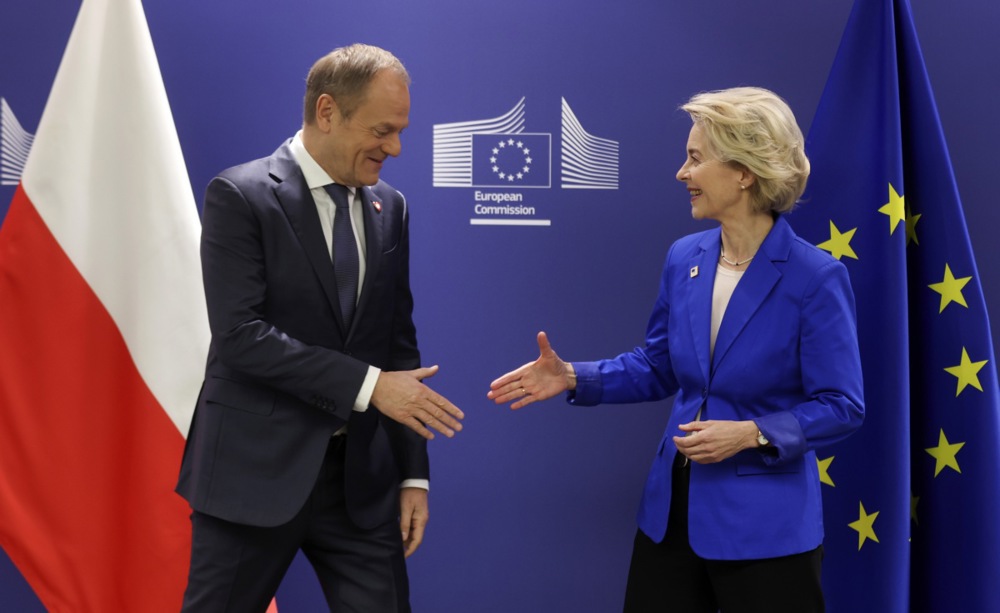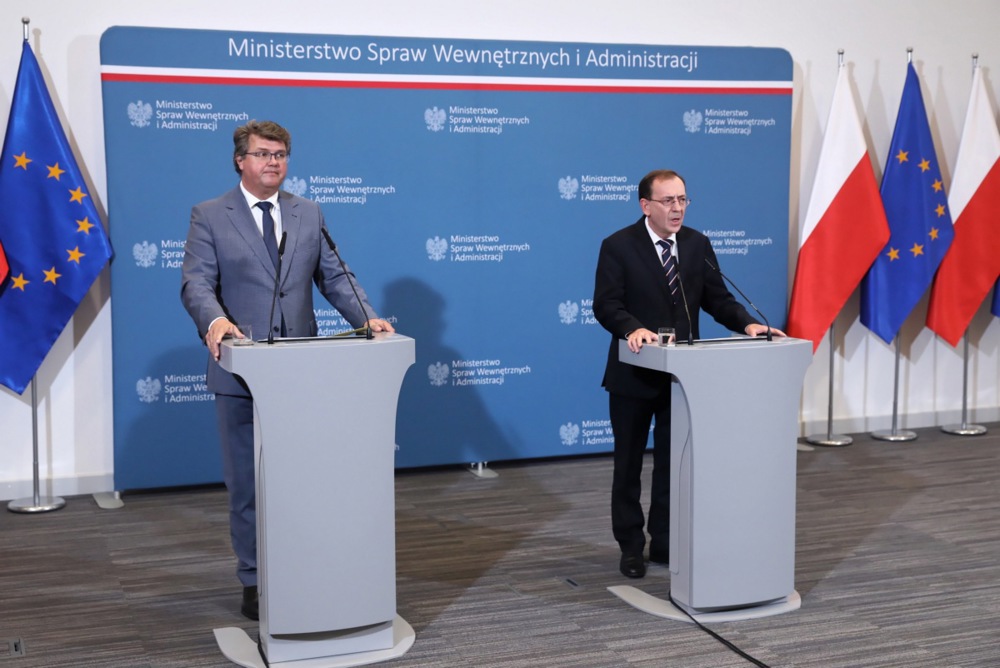Polish President Andrzej Duda met with Prime Minister Donald Tusk and pleaded: “Please stop trying to violate the law.”
Tusk responded that the pair would have to “agree to disagree” and that his Government was ready to by-pass the President’s power of veto regarding its legislative agenda.
The meeting to focus on security issues took place on January 15 ahead of Tusk’s visit to Ukraine later in the week but disputes between the new ruling coalition and the conservative (PiS) opposition dominated proceedings, observers said.
Duda challenged the Government’s decision to dismiss National Prosecutor Dariusz Barski and appoint an interim as illegal since the law obliges such decisions to be taken in consultation with the Head of State, ie himself.
Duda said the justice minister Adam Bodnar, appointed in mid-December last year, must “step back from the path of lawlessness and stop these deplorable actions”.
In his own remarks after the meeting, Tusk confirmed that, “Bodnar’s opinion is different from the one expressed by the President” but said all disputes “should be subject to legal verification” and that the Government would “respect” decisions taken by the courts.
“If someone believes that there is a conflict with the regulations, they can seek legal review,” said Tusk. “We will respect this right of the opposition, as well as the decisions of the courts.”
The Tusk Government is ignoring verdicts of the Polish Constitutional Tribunal, or court, and some chambers of Supreme Court because it considers them to be improperly constituted, a view it shares with the European Commission and the European Court of Justice.
Duda said that, during his meeting with Tusk, he had also called for Bodnar to “comply with my request to start the pardon procedure in the case of Mariusz Kaminski and Maciej Wąsik”, two former PiS government ministers who were arrested on January 11 at the Presidential Palace – against Duda’s will.
Tusk responded by saying: “If the President decides to pardon them, the prisoners should be released immediately.”
He added: “Everyone, without exception, whether a president, a minister, an MP, but also a retiree or a high-school student, should be subject to exactly the same legal rigours.”
Tusk was referring to the fact that due legal process involving pardons includes opinions being issued by the courts ahead of a presidential final decision and that it was up to the courts and not the justice minister as to when such documentation would be issued.
“Courts, not politicians, should decide if someone is guilty or innocent,” he said, adding: “I don’t think I can convince the President of that.”
Among the other topics discussed by Duda and Tusk were changes made regarding public media outlets, which, in the President’s view, also violated the law as a court in Warsaw had ruled that such changes were invalid.
Still, Duda seemed to offer an olive branch saying he felt it was possible for him and the Government to work out “legislative solutions on the future of public media”.
Overall, the meeting appeared to accentuate the differences between the two men, signalling a difficult 18 months of cohabitation ahead.
According to sources close to Duda, he will maintain his stance of pleading for dialogue and urging de-escalation of tensions at a time when the country is facing increasing external threats from the East.
Tusk’s line is that it is up to the President to be “accommodating”, stressing that if this is not the case his Government will find ways of having its policies implemented “by other means”.
As an example of what he was referring to, he cited the push for “the morning after pill” for abortion, which the Government was determined to make available whether via legislation or by executive order if the President vetoed the legislation.
Tusk is seen as being in a strong position as there is no sign of disunity in the coalition Government he leads, whereas the PiS, the Confederation party and Duda are finding it hard to agree common strategies.
Moreover, neither the PiS nor the President have any desire for early elections so soon after last autumn’s poll, with many saying they fear Tusk could secure a majority of over 60 per cent of MPs – which would render a presidential veto impotent.





